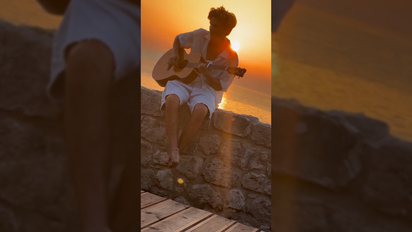In a new documentary series, witnesses to the tragic murder of legendary musician John Lennon have come forward to share their stories for the first time.
The series features interviews with the first responders on the scene, as well as the doctor who treated Lennon at Roosevelt Hospital and the nurse who delivered the devastating news of his death to his wife, Yoko Ono.
Titled after the fact that Lennon’s killer, Mark Chapman, pleaded guilty to second-degree murder just before his trial, the series aims to capture the testimonies of those directly involved in the case before they are lost forever.
Chapman was subsequently sentenced to at least 20 years in prison and has been denied parole numerous times.
Director Nick Holt explained the motivation behind the series, stating, “I felt that many of the individuals who played a significant role in this case were getting older, and if we didn’t document their accounts now, their valuable testimony would be lost forever.”
Among those featured in the documentary is Jack Douglas, Lennon’s producer, who recalls the musician’s final hours.
According to Douglas, Lennon had spent the day at a recording studio working on a new single and was in high spirits.
Douglas vividly remembers their last encounter, saying, “The last I saw of him was when he got into the elevator.
As the doors were closing, he stood right in front of me with a big smile.
He was so happy with how things were going.
It had been a glorious day, and he simply said, ‘I’ll see you in the morning, 8am.’
He was as happy as can be.”
Another witness, taxi driver Richard Peterson, was parked outside the Dakota building where Lennon resided and witnessed the shooting.
Peterson describes the chilling moment, saying, “Lennon was walking in, and this guy says, ‘John Lennon.’
The shooter was a hefty guy.
I saw him shoot Lennon through the front window of my cab.
At first, I thought it was a movie being filmed, but then I realized there were no lights or cameras.
It wasn’t a movie; it was real life.”
Jay Hastings, a concierge at the Dakota building, heard Lennon’s last words as he rushed past him.
“He ran past me and said, ‘I’m shot.’
Blood was coming out of his mouth.
He collapsed on the floor, and I quickly turned him onto his back.
I took off his glasses and placed them on the desk.
Yoko was screaming, ‘Get an ambulance, get an ambulance, get an ambulance.'”
The police officers involved in the case also share their accounts.
NYPD officer Peter Cullen apprehended Chapman at the scene while he clutched a copy of The Catcher In The Rye.
Cullen recalls the arrest, stating, “We handcuffed him, and it was strange that he didn’t resist at all.
In fact, he apologized to us, saying, ‘Gee, I’m sorry you guys, I ruined your night.’
I couldn’t believe it.
I told him, ‘You just ruined your entire life.'”
Herb Frauenberger, another NYPD officer, was among the first to tend to Lennon after the shooting.
“Someone yelled, ‘There’s a guy shot back here.’
So we went in, and the first thing I saw was a man lying on the floor.
I turned his head slightly to check for a pulse, and there was a very faint one… And then it hit me.
I said to myself, ‘Holy smokes, this is John Lennon.'”
Dr. David Halleran, who treated Lennon in the emergency room at Roosevelt Hospital, reflects on the desperate attempts to save the musician’s life.
“I rushed down there, and they informed me that it was a gunshot wound.
We worked































